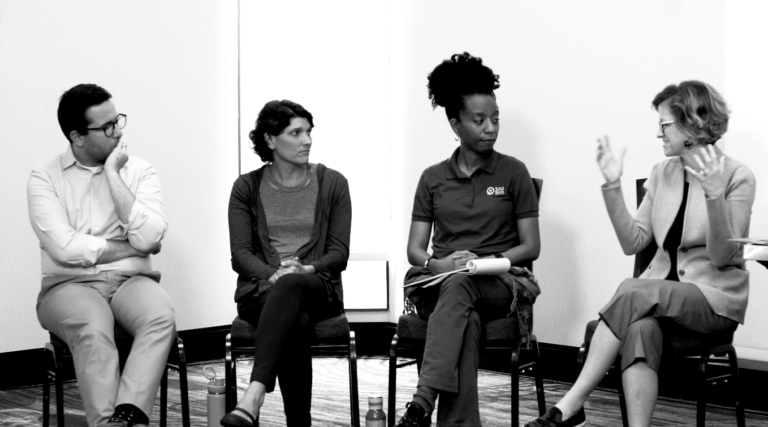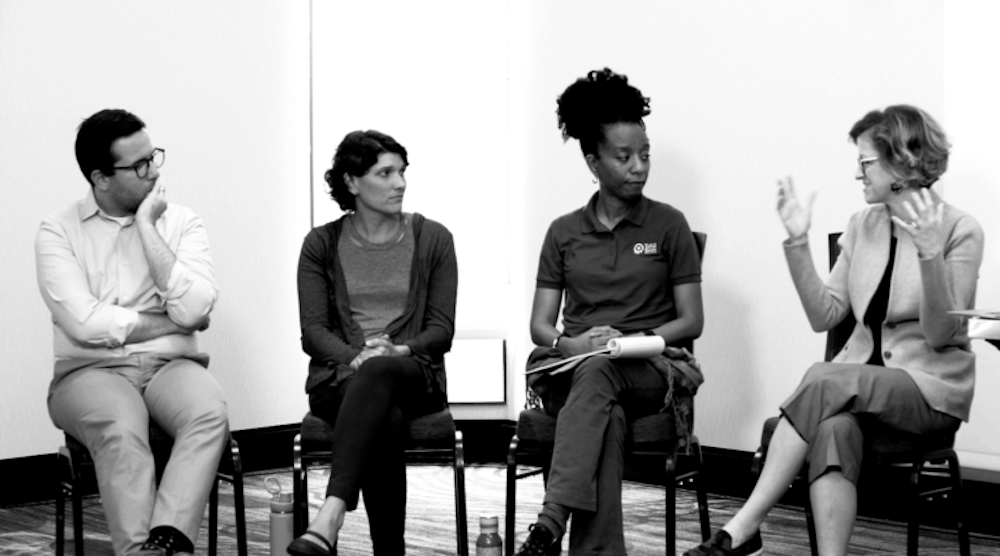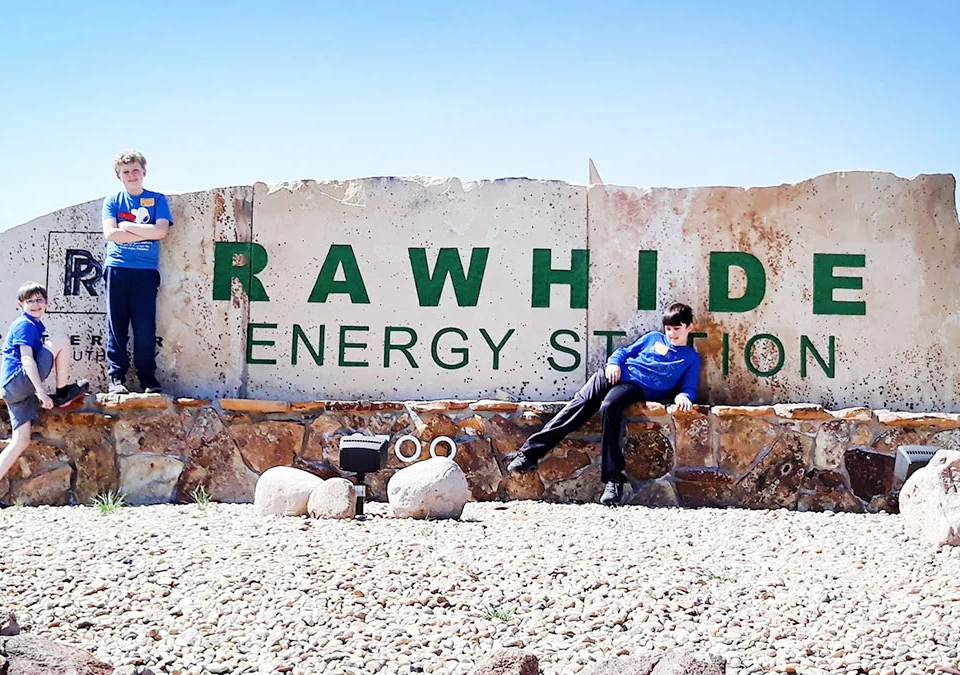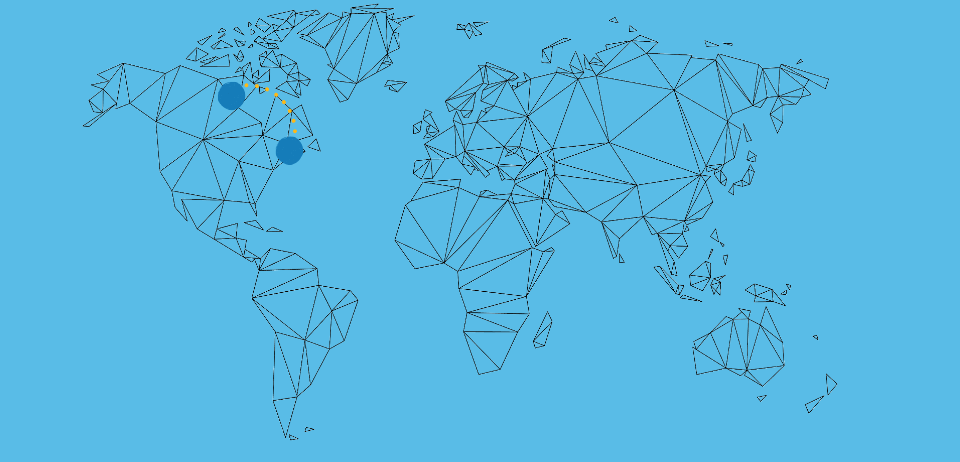Already a member? Log in to the Member Site at members.mastery.org.
Mastery Transcript Takes Center Stage at Northeastern
May 15, 2019
Letter to the Editor: Feedback for MTC
May 20, 2019The Mastery Transcript: Game Changer


MTC member schools piloting the Mastery Transcript discuss mastery learning, experiences with the transcript prototype, and why this work is essential for students
“We had this dream, and it’s actually happening,” said Eder J. Williams McKnight, codirector of Tulsa Term, a semester-long program where “the city becomes the classroom.” The program officially launched this year and resulted from a collaboration between Holland Hall and Tulsa Public Schools.
During a recent MTC Advisory Council meeting in Houston, a panel of four Site Directors from MTC member schools, who are preparing to pilot the Mastery Transcript in 2019-2020, shared insights from their journeys to mastery learning and feedback about early interactions with the Mastery Transcript prototype. Angelique Byrne, an art and design teacher at Pathways High School in Milwaukee, and Brad Droke, director of Innovation Diploma at Mount Vernon Presbyterian School in Atlanta, also served on the panel.
“Getting students to be engaged with place and where they’re from, and to see how academic skills, plus habits of mind, can come together to help them to think innovatively and to make a difference in that place has been exciting,” said Williams McKnight.
MTC pilot schools consist of several member schools who have already transitioned to a mastery-based program and are currently working with teachers and administrators in their schools to build and refine a Mastery Credit Architecture, comprised of Foundational and Advanced Credits. They are also working with students to test and provide feedback on key features of the prototype; a small number of students will enter their information into the beta version of the Mastery Transcript, which will be ready in September 2019, and use it for college admissions during 2019-2020.
Journey to Mastery
The schools’ journeys to mastery were all somewhat different, but what they had in common was a desire to give “all kids” a better education–developing students’ growth mindset, giving them better feedback, and preparing them in a way that aligns with the “real world.”
“During the past five years the school has partnered with external clients ranging from Delta Airlines to Porsche North America, to the Center for Civil and Human Rights, to do work that matters outside the context of school,” said Droke of Innovation Diploma. “The hope was to put students directly into real-world challenges and in a real-world context. We are giving them this radical agency to take ownership over what it is they learn and how they learn it. And then to apply it in a context that is bigger than themselves. We think that mastery-based learning, the idea of competencies really is going to allow us to set the bar higher than what’s been traditionally accepted for someone of our students’ age.”
Byrne and Williams McKnight had similar comments, emphasizing that mastery helps to create equity for all kids and helps them to develop more skills that are relevant.
“They develop more awareness of what our world needs, what our community needs,” said Byrne at Pathways.
Williams McKnight said the effort to create their program took a lot of support from the local community to make it happen and a lot of hard work from teachers. With a “skinny budget” and a small number of very devoted people on their staff, Tulsa Term is thriving.
“It also took some supernatural gifts we didn’t even know we had,” said Williams McKnight with a laugh. “But to launch this and bring it to pass shows us that there’s a need out there and that people see this as valuable. For people in our community to know that there’s something in Tulsa happening that is changing the game…it’s exciting.”
The Mastery Transcript Journey
During the panel, moderator Susie Bell, director of member engagement at MTC who had formerly served as superintendent at MTC member school Windsor Locks High School, posed questions about the schools’ interactions thus far with the Mastery Transcript. In varying degrees, they have been working with the platform since March, gathering with their peer pilot schools to share feedback and questions via regular “Zoom” meetings.
“What are some of the features you love so far about the Mastery Transcript?” asked Bell.
Williams McKnight commented that her early interactions with the transcript have been positive. She has found it easy-to-learn and easy-to-use. She also loves the codesign aspect of the work. MTC is intentionally working with member schools to build the prototype, collecting feedback and ensuring it works for a diverse range of communities–from large, urban high schools to small, independent schools in rural settings.
“It’s exciting to be in conversation with something being created,” said Williams McKnight. “Because the Mastery Transcript is being designed toward ease-of-use, I don’t see the transition to it being tough.”
Bell went on to ask in what ways the Mastery Transcript is a “game changer” for schools.
For Byrne the Mastery Transcript draws upon best practices of the art world, which asks students to show their thinking skills by creating a portfolio of work to tell their story.
“For our school, for students, the game-changer will be that they’ll own it….I think a transcript before was just a thing that happened, because you went to school and it was just there,” said Byrne.
Droke said he loved how Mount Vernon arrived at the decision to use the Mastery Transcript authentically, which is often the case for MTC’s member schools who are moving toward mastery-based learning and who realize the current transcript only supports the status quo.
“When we started to change the type of work that we asked our students to do, it fundamentally changed the way that we reported out on it and assessed the student growth,” he said. “Just yesterday I had a group of eight students who presented the Global Lead for Innovation at Delta. In that moment, there is no letter or number that can actually line up to how well they did.”
Shining a Light on Students
Derby is a student at an MTC member school, Windor Locks High School, who is also codesigning the Mastery Transcript.
Students are the ultimate end users of the Mastery Transcript and the greatest benefits of it will be for them–for all of them and not just the few who have learned to navigate the traditional system. Each panelist had different students in mind who had been underserved by the traditional transcript and who made them particularly passionate about the Mastery Transcript.
Williams McKnight said she was not thinking of one kid, but a category.
“I am thinking of students who are solid B students, who teachers sometimes don’t know how to grade because they are doing fine,” she said. “Part of the reason that a Mastery Transcript would be great for those kids, is part of the reason that they aren’t doing as well as the A kids…They are often doing so many things out in the world, or in different domains…A lot of these students are also the glue to communities.”
Droke had a particular student in mind, whose story demonstrates an important life skill: the ability to pivot in the face of adversity.
“One of my sophomores just found out that she is no longer allowed to play athletics because she’s had too many concussions,” he explained. “But school didn’t ‘traditionally’ fit her.”
The student had been told for most of her “academic” career that soccer was how she would distinguish herself to colleges. When she could no longer play the sport, she set out to find her new path–and so far has explored a range of different strengths and interests she may not have otherwise discovered. She’s written a children’s story about finding one’s own voice, in response to the current political culture of today, and she was part of the team of students who presented to Delta Airlines. She had developed a new boarding process for the airline and shared it with them during a pitch meeting in Atlanta. Droke said that, in this journey, she has grown so much and will now have a way to share that story.
“I see the Mastery Transcript really highlighting a student like that,” he said “And it’s not the story that she imagined she was going to be able to tell….So many students go through incredibly difficult things like that,” said Droke. “High schoolers need different ways to show different skill sets and different mindsets that connect more broadly than we currently let them.”
Watch a video excerpt of the panel of pilot schools below. Are you interested in learning more about this work or do you have feedback for us? Contact us today.




